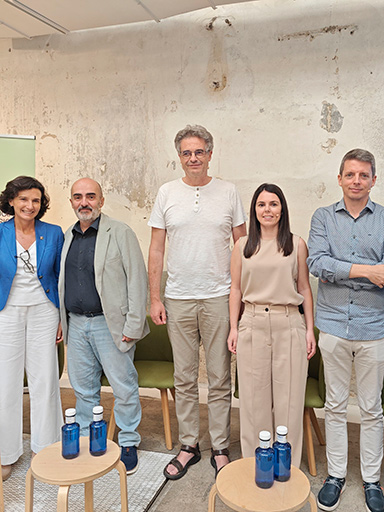- The Spanish Fair Transition Observatory recently presented its third national report on society’s perception of the ecological transition in Spain
- In addition, 80.6% of the population firmly believes that climate change is a reality
- Most people associate the transition with benefits: 67% believe it will improve air and water quality, and 62% consider that it will have a positive effect on health
- See the full report here: download
The fight against climate change remains a top priority
Sixty-three percent of the Spanish population believes that combating climate change should be a priority for action. This represents a decrease of 5% compared to last year's report, but it continues to be a concern for the majority of people. Support is higher among women and people living in large cities, while young men are increasingly skeptical.
In parallel, knowledge about the ecological transition is growing — 47% say they understand the meaning of this term — although age and gender gaps persist. While there is still a broad consensus regarding the existence of climate change, a slight drop in perception can be seen. In 2025, 76% of young people aged between 18 and 30 claim to firmly believe in climate change, compared to 90% in 2023.
Incentives, feelings, and sustainable habits
Society continues to show a clear preference for incentive-based measures, including subsidies for vulnerable households, support for sustainable businesses, and awareness campaigns, whereas fiscal measures such as environmental taxes enjoy a lower level of support.
As for the emotions associated with the transition, positive feelings predominate for the first time: interest (25%), hope (24%), and responsibility (20%) outperform helplessness or uncertainty, which are on the decline.
Sustainable habits are also observed in daily life: 68% declare that they recycle, and nearly 50% travel on public transport, on foot, or by bicycle. In addition, 51% of the population believes that one of the main advantages of electric cars is that they are environmentally friendly, although they note that there are several barriers, including the lack of charging points (37%), range (36%), and price (36%).
Perception of the future
The impact on employment is a key aspect: 49% anticipate job opportunities linked to the transition, compared to 44% who fear a drop in their field.
The ecological transition is seen as an opportunity for the present (53%) and especially for the future (67%), as long as it manages to be inclusive and takes into account different social realities and economic conditions.
Anabel Suso, report coordinator and Public Policy Innovation Director at Red2Red, indicated that "This year’s data confirms a slight decrease in support for the fight against climate change, especially among younger generations, which reflects the need to strengthen the links between environmental discourse and social realities. The growth of the skeptical group shows that the transition will only be fair if it is also understandable, accessible, and affordable for all citizens."
Meanwhile, Teresa Mañueco, director of Fundación Moeve, highlighted the importance of continuing to produce this type of report.


